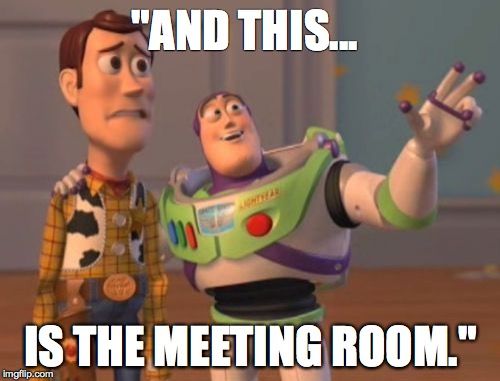Occasionally I come across a topic that catches my interest and I am eager to research it further to find out more information. This generally comes as a result of pure excitement, yet there are moments where my interest comes from the unknown. The desire to known the unknown and make sense of it all is part of my character. Could it be pride, to know information before anyone else finds out? Or possibly it comes from the fear of being the last one to know, resulting in a given reputable label by others to show my lack of intelligence. Donald Rumsfeld once said, “There are known knowns. These are things we know that we know. There are known unknowns. That is to say, there are things that we know we don’t know. But there are also unknown unknowns. There are things we don’t know we don’t know.” This #PSYCH485 blog is not to share with you the unknowns of life, but to express my interest in a topic that seems unknown: authentic leadership.
There is a great amount of information on what authentic leadership is, why it is successful, and the like. Yet, it is not a fully developed theory, especially when viewing the moral side of it. It has not been fully explained, and as my #PSYCH485 course points out, “…it may turn out that this is not a useful theory after all.” (Lesson 12, p. 6). So what exactly is authentic leadership? Northouse (2015) defines it in three ways: interpersonal, intrapersonal, and developmental. Interpersonal refers to healthy relationships between a leader and a follower, with actions being present on both ends. Intrapersonal qualities describe a leader’s knowledge of him or herself through ways such as self-knowledge, behavior awareness, etc. Development explains that authentic leadership can be learned throughout life as people grow older and change their ways. (195-196).
Gruenfeld and Zander (2011) wrote an article about the downside of authentic leadership, and the consequence of it not being a fully developed theory. “Your authentic self should be the basis of your leadership style. But, it is better to take a good hard look at who you really are before showcasing and defending everything that comes naturally.” This seems to connect back to Rumsfeld’s quote in the first paragraph, about the unknown unknowns. A person may use their authentic leadership skills, but how can they lead with those when there are unknown dark spots within them that they have not been exposed to yet?
This led me to a personal question of whether or not I am an authentic leader. I used Michael Hyatt’s article to reach the conclusion of my own level of authentic leadership. Hyatt (2012) recognizes five characteristics that point towards an individual being an authentic leadership: insight, initiative, influence, impact, and integrity. Out of these five, the one that I feel I lack the most is impact. Impact is not something that is found in the leader, but rather it is found within the follower. Many times I find myself going through the motions in life, without making an impact on others. As a leader, I hope to make an impact but it is not always clear whether I am or not.
Authentic leadership can be a great leadership style, but because it is not fully developed, it is hard to say whether or not one must possess the characteristics within this theory in order to be successful. Regardless, the characteristics can be used as motivation to better oneself in ways that they may need. I will look at authentic leadership as a way to develop my skills, without solely using this theory to base my whole career from.
Reference:
http://www.brainyquote.com/quotes/authors/d/donald_rumsfeld.html
Gruenfeld, Deborah., & Zander, Lauren., (February 3, 2011). Authentic Leadership Can Be Bad Leadership. Retrieved April 7, 2016 from https://hbr.org/2011/02/authentic-leadership-can-be-ba.
Hyatt, Michael. (July 3, 2012). The 5 Marks of Authentic Leadership. Retrieved April 8, 2016 from http://michaelhyatt.com/the-five-marks-of-authentic-leadership.html.
Northouse, Peter G. (Ed.). (2015). Leadership: Theory and Practice (7th Ed.).Thousand Oaks, CA: Sage.
Pennsylvania State University (2016). Leadership in Work Settings—PSYCH 485. Online course lesson. Penn State World Campus. The Pennsylvania State University. Retrieved April 7, 2016 from https://courses.worldcampus.psu.edu/sp16/psych485/002/content/12_lesson/06_page.html.

